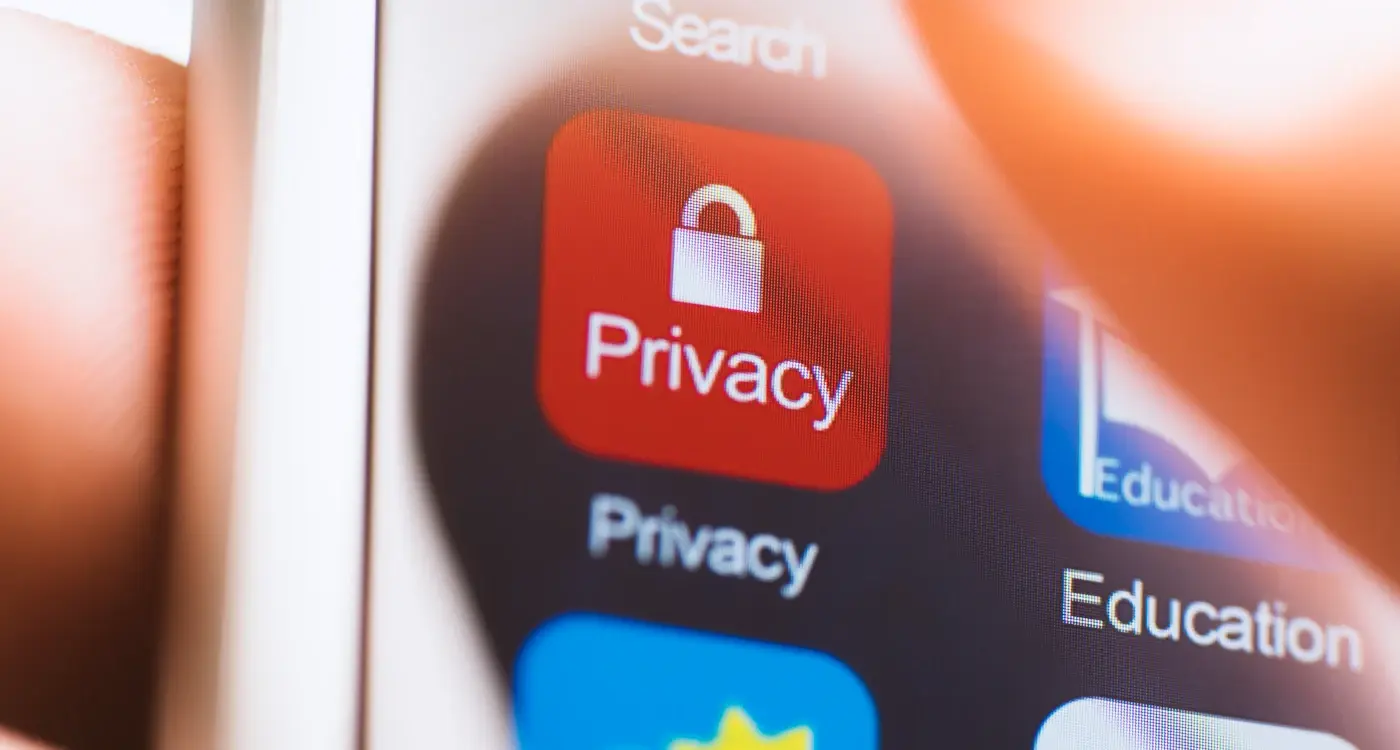Do I Really Need Terms of Service for My App?
Building a mobile app these days means dealing with a lot more than just code and user interfaces—you've got to think about legal protection too. Over my years developing apps for clients ranging from tech startups to established brands, I've noticed one question that comes up again and again: do I actually need Terms of Service for my app? It's a fair question, and honestly, one that deserves a proper answer because getting it wrong can be costly.
The short answer is: probably yes, but it depends on your specific situation. Terms of Service (or ToS as we often call them) are those lengthy documents that most users scroll through without reading before tapping "I agree." But here's the thing—they're not just legal jargon designed to bore people to death. They're your first line of defence when things go wrong, and trust me, things do go wrong sometimes.
The reality is that every app faces potential legal risks, whether you're collecting user data, processing payments, or simply allowing people to create accounts
What makes this topic tricky is that app agreements aren't one-size-fits-all. A simple utility app that works offline has very different legal requirements compared to a social platform where users share content. Some apps can get away without Terms of Service—though they're becoming rarer—whilst others absolutely cannot function legally without proper app agreements in place. The key is understanding where your app sits on this spectrum and what level of legal protection you actually need.
What Are Terms Of Service And Why Do Apps Need Them
Terms of Service are the rulebook for your app—think of them as the legal agreement between you and your users that explains what people can and can't do with your app. They cover everything from how users should behave to what happens if something goes wrong. Every time someone downloads and uses your app, they're agreeing to follow these rules, whether they read them or not.
Now, you might be wondering why your app needs these legal documents in the first place. The simple answer is protection. Terms of Service act like a shield that protects your business from lawsuits, disputes, and misuse of your app. They set clear boundaries about what's acceptable behaviour and give you the legal right to ban users who break the rules.
Protection From Legal Issues
Without Terms of Service, you're leaving yourself wide open to problems. Users could potentially sue you for things that weren't your fault, or claim they didn't know certain actions weren't allowed. Having clear terms means you've told everyone the rules upfront—no surprises later.
Setting User Expectations
Terms of Service also help manage what users expect from your app. They explain what your app does, what it doesn't do, and what happens if things go wrong. This transparency actually builds trust with your users because they know exactly where they stand.
The reality is that most app stores, including Apple's App Store and Google Play, strongly recommend having Terms of Service. Some won't even approve your app without them. So really, it's not just about legal protection—it's about getting your app into people's hands in the first place.
The Legal Risks Of Not Having Terms Of Service
When you launch a mobile app without terms of service, you're basically operating without legal protection—and that's a risky position to be in. I've seen app developers learn this lesson the hard way, and trust me, it's not pleasant. Without proper app agreements in place, you leave yourself vulnerable to all sorts of legal headaches that could seriously damage your business.
The biggest risk is liability issues. If something goes wrong with your app and a user gets hurt or suffers damages, they might try to hold you responsible. Without terms of service clearly outlining your limitations and responsibilities, you could face expensive lawsuits. Your app might crash and cause someone to lose important data, or a user might misuse your platform and blame you for the consequences.
Financial and Operational Risks
Here are the main legal risks you face without terms of service:
- Unlimited liability for user actions and app malfunctions
- No protection against frivolous lawsuits
- Inability to control how users behave on your platform
- No clear ownership rights over user-generated content
- Difficulty removing problematic users
- Potential copyright and trademark disputes
Intellectual property disputes represent another major concern. Without terms of service, you can't clearly establish who owns what content within your mobile app. If users upload photos, write reviews, or create content, you need legal protection to use that material for your business purposes.
Don't wait until you have legal problems to create terms of service. Prevention is always cheaper than litigation, and having proper app agreements from day one protects your business from expensive disputes down the road.
The reality is that operating without terms of service leaves you exposed to risks that could shut down your entire operation. The cost of creating proper legal protection is minimal compared to the potential financial disaster of facing unprotected legal challenges.
What Should Your App's Terms Of Service Include
After eight years of building mobile apps, I've seen countless developers struggle with what to actually put in their terms of service. The good news is that most apps need similar clauses—you don't need to reinvent the wheel here. Let me walk you through the key sections that should be in your terms.
Start with user responsibilities and acceptable use. This section tells people what they can and cannot do with your app. Things like not using your app for illegal activities, not trying to hack it, and not posting offensive content if your app has social features. Be specific about what behaviours you won't tolerate.
Protecting Your Business Interests
Your intellectual property rights need clear protection. State that you own the app, its content, and any trademarks. Users get permission to use your app, but they don't own any part of it. If users can upload content, specify who owns that content and what rights you have to use it.
Include liability limitations and disclaimers. Whilst you can't completely escape responsibility for your app, you can limit your liability where legally possible. Explain that your app is provided "as is" and that you're not responsible for any damages users might suffer from using it.
Operational Essentials
Add termination clauses explaining when and how you can suspend or ban users, and when users can stop using your app. Include how updates work—users should understand that you can change your app and that continued use means they accept those changes.
Finally, cover the boring but necessary legal bits: which country's laws apply, how disputes get resolved, and your contact information. If your app processes payments, include specific terms about refunds, billing, and payment processing. Keep everything written in plain English—legal jargon just confuses people and defeats the purpose of having clear terms.
Privacy Policies Vs Terms Of Service—Understanding The Difference
After building mobile apps for over eight years, I've noticed that many app owners get confused between privacy policies and terms of service. They sound similar and both are legal documents, but they serve completely different purposes for your mobile app's legal protection.
Your terms of service are like the rules of your app—they tell users what they can and can't do whilst using your mobile app. They cover things like user behaviour, payments, account suspension, and what happens if someone breaks the rules. Think of them as your app's rulebook that protects you from misuse and provides legal protection when users misbehave.
What Privacy Policies Actually Do
Privacy policies, on the other hand, are all about data. They explain what personal information you collect from users, how you use it, who you share it with, and how users can control their data. If your app collects any user information—even something as basic as an email address—you'll need a privacy policy. It's not just good practice; it's required by law in most places, especially when dealing with location data and GPS information.
The main difference is simple: terms of service protect your business from users, whilst privacy policies protect users' data from your business
Most mobile apps need both documents as part of their app agreements. They work together to create comprehensive legal protection—your terms of service handle the business side whilst your privacy policy handles the data protection side. You can't really substitute one for the other because they cover entirely different legal requirements and risks.
When You Might Not Need Terms Of Service
After spending years developing apps across different industries, I've learnt that not every single app needs terms of service. Yes, you read that correctly—sometimes you can skip them entirely without putting yourself at legal risk.
The simplest apps that function purely as offline tools often fall into this category. Think about a basic calculator app, a flashlight app, or a simple unit converter that works entirely on your device. These apps don't collect user data, don't require accounts, and don't offer any services that could create disputes between you and your users.
Apps That Typically Don't Need Terms
Here are the main types of apps that might not require terms of service:
- Offline-only utility apps (calculators, measurement tools)
- Simple games with no multiplayer features or data collection
- Basic reference apps that don't update content
- Standalone productivity tools without cloud storage
- Apps that don't collect any personal information
The Catch
Here's where it gets tricky though—most modern apps aren't quite this simple. Even a basic calculator might include analytics to track which features people use most; that immediately changes everything. The moment your app connects to the internet, stores user preferences, or includes advertising, you're back in terms of service territory.
App stores also have their own requirements. Apple and Google both reserve the right to request legal documentation from developers, and having terms ready can make approval processes smoother. While not always mandatory, terms of service often serve as a safety net that protects both you and your users from misunderstandings about what your app does and doesn't do.
How To Create Terms Of Service For Your App
Creating terms of service for your mobile app doesn't have to be complicated, but it does need to be done properly. After years of building apps and seeing what works (and what definitely doesn't!), I can tell you that the best approach is to start with the basics and build from there.
The first step is deciding whether to write them yourself or get legal help. For simple apps with basic functionality, you might be able to use a template or online generator. But if your app handles payments, user-generated content, or sensitive data, you'll want a lawyer involved. Trust me on this one—cutting corners here can cost you later.
What Your Terms Should Cover
Your terms of service need to address the key areas that protect both you and your users. Start with these essential sections:
- What your app does and how users can access it
- What users can and cannot do with your app
- Your intellectual property rights
- How you handle disputes and complaints
- What happens if someone breaks the rules
- How users can contact you about problems
Making Them User-Friendly
Nobody enjoys reading legal documents, but you can make yours less painful. Write in plain English where possible, break up long paragraphs, and avoid unnecessary legal jargon. The goal is legal protection that real people can actually understand.
Make sure your terms are easy to find in your app—usually in the settings menu or footer. You'll also need users to agree to them, typically during the sign-up process or first app launch.
Always date your terms of service and keep previous versions archived. This helps prove what users agreed to at different times and shows you're keeping everything current.
Common Mistakes To Avoid With App Terms Of Service
After writing terms of service for countless apps over the years, I've seen the same mistakes crop up again and again. The good news? Most of them are completely avoidable once you know what to look out for.
Making Your Terms Too Complicated
The biggest mistake I see is when people think their terms need to sound like they were written by a barrister from the 1800s. You know the type—packed with legal jargon that would make Shakespeare scratch his head. Your users won't read terms they can't understand, which defeats the whole purpose. Write in plain English. If a teenager can't grasp what you're saying, simplify it.
Another common slip-up is copying someone else's terms word for word. I get it—writing legal documents isn't exactly fun, and it's tempting to borrow from that successful app you admire. But here's the thing: their business model probably differs from yours, and their terms reflect their specific needs. What works for them might leave you legally exposed.
Forgetting To Update When Your App Changes
Then there's the "set it and forget it" approach. Your terms aren't a fire-and-forget document. When you add new features, change your pricing, or update how user data gets handled, your terms need updating too. I've seen apps get into trouble because their terms said one thing whilst their app did something completely different.
One final mistake that catches people out is not making your terms easy to find. Burying them deep in your app or making the text so small it requires a magnifying glass isn't just poor user experience—it can make your terms legally questionable. Keep them accessible and readable.
Conclusion
After building mobile apps for over eight years, I can tell you that most apps absolutely need terms of service. The legal protection they provide far outweighs the small effort required to create them—and the risks of going without are simply too high for most app developers to ignore.
Think about it this way: if your app collects any user data, allows user-generated content, processes payments, or has users create accounts, you're almost certainly going to need proper app agreements in place. That covers the vast majority of mobile apps we see today. Even simple apps often grow and add features over time, making terms of service a smart investment from day one.
The good news? Creating terms of service doesn't have to be complicated or expensive. You can start with a template and customise it for your specific app, or work with a legal professional if your app handles sensitive data or operates in a highly regulated industry. What matters most is that you have something in place rather than nothing at all.
I've seen too many developers get caught out by not having proper legal documentation—from app store rejections to user disputes that could have been easily resolved. Don't let that be you. Take the time to get your terms of service sorted properly. Your future self (and your business) will thank you for it. The small upfront investment in legal protection is worth every penny when you consider what you're protecting against.
Share this
Subscribe To Our Learning Centre
You May Also Like
These Related Guides

How Do I Prepare My App's Privacy Policy for Stores?

Do I Need a Privacy Policy for My Mobile App?



